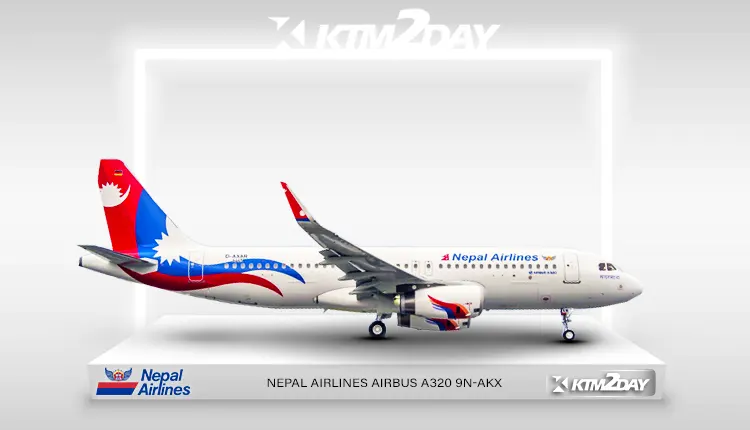Nepal Airlines’ A320 Returns After 5 Months Repair Process, Causing Over NPR 300 Million in Losses


In a concerning development, Nepal’s national flag carrier, Nepal Airlines Corporation (NAC), has faced significant financial setbacks due to the prolonged grounding of one of its narrow-body aircraft.
The aircraft, a 158-seat Airbus A320 with the registration 9N-AKX, had been sent to Israel for engine replacement, but the repair process took an unexpected turn, leading to a five-month delay and substantial losses for the airline.
According to the NAC management, the aircraft, named Lumbini, was sent to the Israel Aerospace Industries (IAI) for engine replacement on December 15.
However, during the repair process, the company discovered additional technical issues, including the need to replace 31 blades within the engine.
This unforeseen complication resulted in the aircraft’s delayed return, which had been initially scheduled for April 10.
The prolonged grounding of the narrow-body aircraft has had a significant financial impact on the airline.

NAC estimates that the loss from the aircraft’s downtime amounts to over NPR 300 million (approximately $2.5 million), as the airline was unable to operate the scheduled flights during this period.
“The management of the NAC was unable to make timely decisions, leading to the aircraft being grounded for five months, resulting in a loss of over NPR 300 million in revenue from flight operations,” a senior NAC official stated.
The NAC is currently operating with only one narrow-body aircraft, which is causing daily losses of over NPR 106 million (approximately $850,000) for the airline. The management is working to address the situation and bring the grounded aircraft back into service as soon as possible.
This incident highlights the importance of efficient decision-making and proactive maintenance planning in the aviation industry.
The prolonged grounding of the aircraft has not only resulted in substantial financial losses for the NAC but has also disrupted the airline’s operations and its ability to serve its customers effectively.
As the NAC works to resolve the technical issues and restore its fleet to full operational capacity, the airline’s management will need to carefully review its processes and implement measures to prevent such costly delays in the future, ensuring the smooth and reliable operation of its services.















